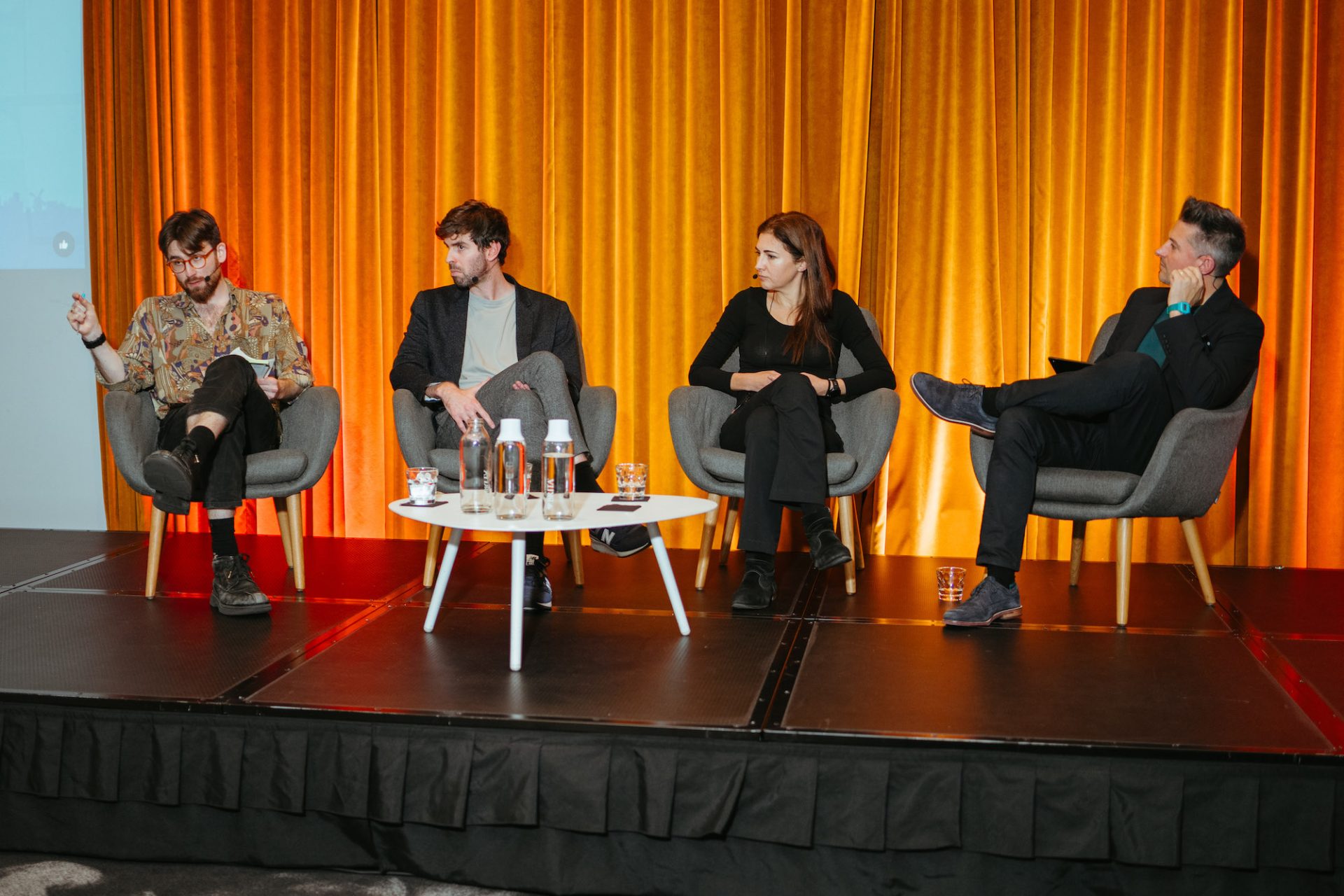Should we reduce how often we fly? Can the event industry help solve the issue of overtourism? These were some of the tough topics tackled at micebook Ventures Chapter III, which took place in post-Olympics Paris on 4-6 November.
The event (see full highlights here) featured a content session led by award-winning climate comedian, podcaster and speaker Stuart Goldsmith and featuring a panel of sustainability experts.
Goldsmith kicked off by inviting the audience to share their own climate confessions, encouraging them to speak openly about their unsustainable practices and sharing some of his own.
This was followed by a panel discussion featuring Beatrice Eastham, founder-CEO of carbon events consultancy Green Evénements, Sean Currie from Stay Grounded, a global grassroots network of 200+ science-based, action-oriented organisations campaigning against the aviation industry and Lior Steinberg, an urban planner and co-founder of Humankind, a Rotterdam-based agency for urban change.
Ann-Sofie Hörlin, head of sustainability at SAS – Scandinavian Airlines, was unable to attend in person, but shared some insights on sustainable aviation fuel and the future of the aviation industry from her perspective via pre-recorded video.
Paris 2024 legacy
Eastham discussed the ambitious sustainability goals of the Paris Olympics, aiming for 50% less carbon emissions compared to previous games, and explained the strategies used to achieve these goals, such as using existing venues, improving transportation, and reducing meat consumption in food services.
The data on the Paris Olympics’ carbon emissions will be available soon, but it is expected to be close to the target according to Eastham. She also emphasised the importance of linking large-scale events with urban planning projects to create lasting sustainable impacts on host cities.
Tackling overtourism
Lior Steinberg addressed the issue of over tourism in major European cities and the negative impact on local communities. He suggested that the event industry can help combat over tourism by promoting smaller, less popular destinations and working with local governments to improve livability.
There are many benefits to using smaller cities like Groningen in the Netherlands as opposed to Amsterdam, which suffers from overtourism, and Steinberg encourages corporate clients to consider alternative destinations to reduce the strain on popular cities and support local economies.
The future of aviation
Hörlin discussed the potential of sustainable aviation fuel (SAF) to reduce greenhouse gas emissions by up to 80% and mentioned the company’s programs for corporate customers to buy SAF for their events travel. She also referenced other forms of more sustainable aviation that are being invested in such as hydrogen and electric solutions.
Sean Currie criticised the aviation industry’s reliance on SAF and the lack of scalable solutions, such as using cooking oil and pig fat. He argued that reducing flights is essential for achieving carbon neutrality by 2050 and that corporate events can play a role in this reduction.
He also highlighted the broader environmental impact of aviation beyond carbon emissions, including nitrogen emissions and contrails, which contribute to global heating.
Challenges and solutions
The audience were then asked to break into groups to discuss their challenges in making sustainable choices, with cost, time, resources, lack of knowledge and education among those shared by event profs in the room.
The discussion focused on strategies for integrating sustainability into event planning. Key techniques included pre-event surveys to gauge client willingness to allocate more budget for sustainability, proposing sustainable alternatives alongside traditional options, and using tools like the “climate” tool to measure carbon emissions.
Other solutions shared included using local sourcing and technology to enhance sustainability. The conversation also touched on the misconception that luxury and sustainability are incompatible, emphasising that luxury can be sustainable and that sustainable practices can enhance the event experience.

